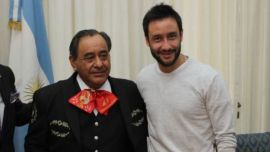The Supreme Court has dismissed a series of defensive moves introduced by Vice-President Cristina Fernández de Kirchner and her legal team in various cases.
In the famed money-laundering case labelled by the media as “Ruta del dinero K” (“Route of the Kirchnerite money” or “K money trail”), the former president’s defence had requested the disqualification of judges Martín Irurzun and Mariano Llorens, members of Chamber II of the National Criminal and Misdemeanours Appeals Court.
The request was motivated by the fact that the above magistrates, on August 31, 2018, granted a request by the UIF (Unidad de Información Financiera) money-laundering watchdog unit and summoned Fernández de Kirchner to testify.
Judge Leopoldo Bruglia rejected the recusal, after which the vice-president’s defence appealed the ruling up to the Supreme Court.
The Cassation Court had already found that, as a general rule, a decision on disqualifications may not be challenged in that instance, as it is not a final or comparable ruling.
The Supreme Court, comprising the justices Horacio Rosatti, Carlos Rosenkrantz and Juan Carlos Maqueda, dismissed the claim on the same grounds.
In the meantime, within the investigation into the 2013 Memorandum of Understanding with Iran, legal teams for Fernández de Kirchner and co-defendant Oscar Parrilli requested the recusal of Judge Juan Carlos Gemigniani, a member of Chamber IV of the Federal Criminal Cassation Court.
In that case, the court dismissed the requests for disqualification, on the understanding that the respective defences had not proved any specific infringement of constitutional guarantees or any of the grounds prescribed by law to challenge a magistrate.
On the contrary, it pointed out that the motions were limited to conjectures not duly attested in the case file. The court also stated that the petitioners had already known about the composition of the court in previous rulings, without any such motions being filed.
Both the former president and the former minister presented their respective remedies, as they deemed that the guarantee of the impartiality of the judge had been affected, and after their motions were denied, they took their claims to the Supreme Court.
With the same justices as in the other ruling, the court dismissed the complaints due to non-compliance with the rules under Record 4/2007 of the Court.
In a fourth case, the potential commission of the crime of concealing historical documents was being investigated, after the finding of a letter signed on December 26, 1835, from General José de San Martín to Bernardo O’Higgins, and a “compendium” of Hipólito Yrigoyen’s activities between 1906 and 1910.
These documents were seized in case no. 9608/2018, known in the media as the “Cuadernos” (“corruption notebooks”) case, from a property owned by the vice-president in El Calafate, Santa Cruz.
That search was ordered by the late judge Claudio Bonadio, who was disqualified by Fernández de Kirchner’s defence in the successive tiers before reaching the Supreme Court.
The day after the case file was admitted by the Court, Bonadio passed away. Hence, Justices Rosatti, Rosenkrantz and Maqueda found that the issue had become abstract.
– TIMES/NA




















Comments